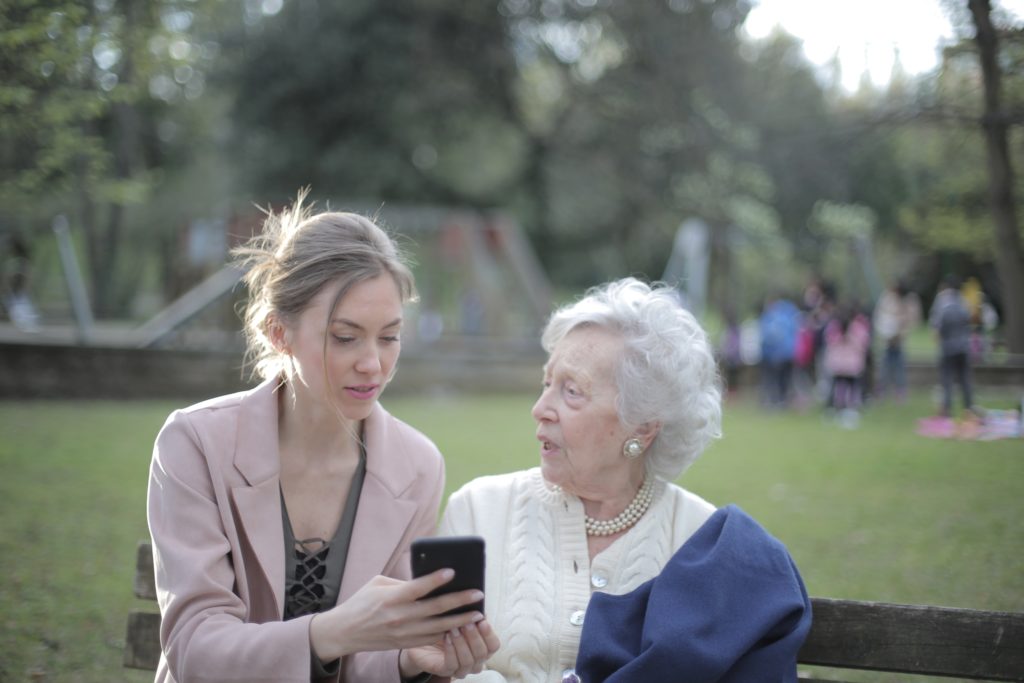Caregiver Burnout: What it is and what to do about it
Whether out of love or obligation, over 40 million North Americans keep their loved ones under their care each year, according to Pew Research Center. It is difficult to see a loved one suffering and in need of help, which is why it can be easy for caregivers to neglect physical, emotional, and spiritual needs in favor of their loved ones’. When it all becomes too much, a caregiver may experience inadequacy, guilt, and anxiety. Putting a label to feelings such as “caregiver burnout” is the first step to healing and feeling less alone.
What is caregiver burnout?
Caregiver burnout is a state of physical, emotional, and mental exhaustion when a caregiver has pushed themselves further than they are able to emotionally, physically, and even financially. This can be accompanied by feelings of guilt, as the caregiver tends to put their loved ones’ needs before their own, thus causing depression, anxiety, and physical illness for the caregiver.
Causes of caregiver burnout: the expectations, the fear, the lack of control

From cared for to caregiver: Adults go into the world learning how to take care of ourselves. It can be confusing when caregivers find themselves having to take care of another person, especially if said loved one at one point cared for them. As a result, it is hard for the caregiver to see themselves as anything else and from spending energy on other close relationships. As a result, the caregiver loses sight of their identity outside of being a caregiver and becomes isolated as they neglect close relationships and the identities attached to them (e.g., child, parent, lover, parishioner, friend).
The unrealistic expectations: The caregiver may feel that taking care of their time and energy is best spent on making their loved one happy and healthy. An obligation to family, other loved ones, or even a higher power has the caregiver devote themselves entirely to caring for individuals. However, the caregiver may begin to get frustrated and feel like they’ve failed their loved one by not being able to completely reduce their suffering. In some cases, the caregiver’s tolerance, patience, and willingness to provide care may turn into a short temper, stress, and a lack of concern for their loved one.
It’s out of control: Caregivers often push themselves to the limit financially, emotionally, and physically to where keeping up with everything feels impossible.
Symptoms and warning signs: When to reach out for help
Knowing the symptoms of burnout can help caregivers make sense of them:
- Withdrawal from close relationships such as friends, spouses, children, and family members
- Lack of energy
- Feeling like the future is hopeless or bleak
- Losing interest in hobbies
- Neglecting physical and emotional needs
- Changes in appetite; eating too much or too little resulting in weight loss or gain
- Changes in sleep; too much or too little
- Increased susceptibility to illness resulting in getting sick more often and taking longer to recover
- Headaches, muscle aches and other physical ailments that make it hard to function
- Becoming argumentative, irritable, impatient with sick loved ones and others
- Fearing the inability to cope with everyday life
- Fearing self-harm, or harming a loved one
Prevention and healing strategies
Caregivers can try the following to prevent burnout:
- Watch for the mentioned warning signs of burnout.
- Ask for help. All caregivers need help themselves every so often.
- Break the silence by talking to someone.
- Take frequent breaks.
- Practice self-care. Exercise, stretches, doctor visits, and detoxing will do.
- Smile, laugh, and be happy.
- Be honest about the situation.
- Talk to a professional. Therapists, social workers, and even clergy members are trained to counsel individuals experiencing physical and emotional distress.
- Join a caregiver support group. Talking to others in the same situation can help caregivers feel less alone, find new coping strategies and resources, and reduce feelings of isolation.
Where to reach out for help
If you or a loved one is suffering from caregiver burnout, Transitions CaregiverSupport offers resources and more.
Remember: No one is alone. There is hope. There is help.
— by Christina Lee
Christina Lee is a social media strategist at Top Canadian Writers and Study demic. She writes about marketing news and technologies for such services as Simple Grad and others.